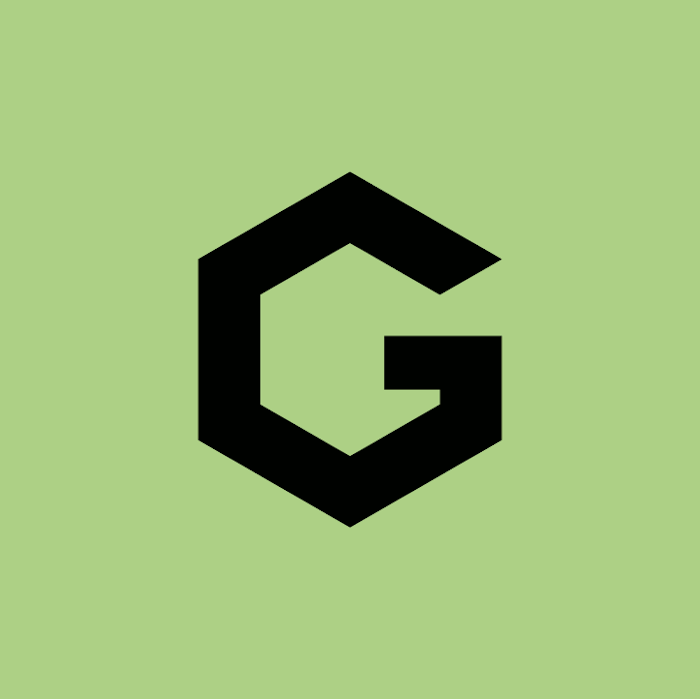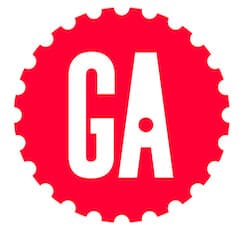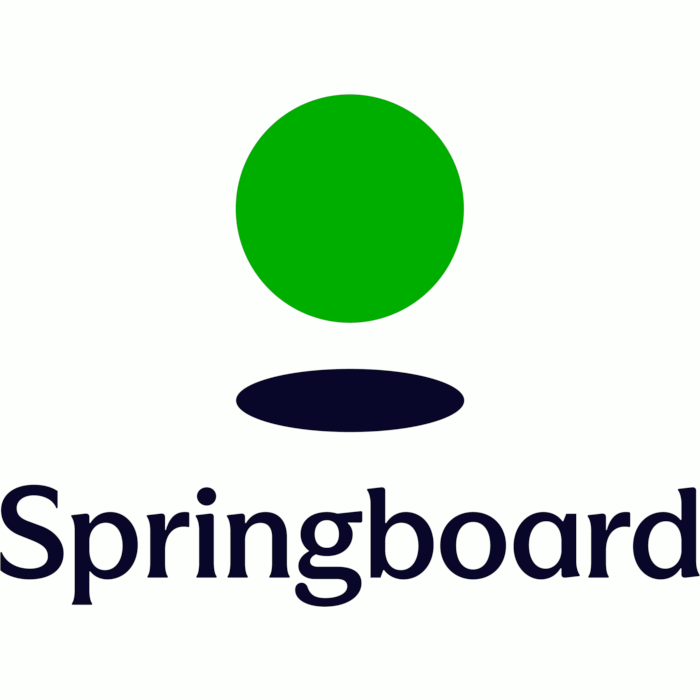About Grace Hopper Program
Location:
The Grace Hopper Program at Fullstack Academy is a live online, immersive software engineering bootcamp for women and non-binary students. Students can choose between the 28-week, part-time bootcamp or the 12-week, full-time bootcamp with Monday-Friday... Read More
Founded in 2016, the Grace Hopper Program includes the same, award-winning curriculum as Fullstack Academy with additional emphasis on combating systemic barriers. The Grace Hopper Program’s mission is to equip students with the skills and support to land a life-changing job in tech, plus the confidence to turn it into a thriving career. The bootcamp starts at a foundational level to accommodate both beginner and intermediate coders, but moves into more advanced concepts every week. Grace Hopper Program graduates possess computer science fundamentals like algorithms, command line interface, data structures, React, HTML & CSS, JavaScript frameworks (Express.js, Node.js), SQL, and test-driven development.
Applicants to the bootcamp should be nonbinary and women coders who are proficient in basic HTML, CSS, and JavaScript coding languages. Prospective students should embody the characteristics of the Grace Hopper Program community: drive, transparency, and allyship.
The Grace Hopper Program students will receive career counseling during the bootcamp, including optimizing a student’s resume and LinkedIn, networking, mock interviews, salary negotiation, and navigating company culture fit. Grace Hopper Program graduates have gone on to become software developers at top companies like Amazon, Bloomberg Engineering, Google, and others.
Do you represent this school? Suggest edits.
Courses
Grace Hopper Program Software Engineering Immersive (Full-Time)
Grace Hopper Program Software Engineering Immersive (Part-Time)
Grace Hopper Program Reviews
Average Ratings (All Programs)
Dani Jordan
Full Stack Web Developer | Graduated: 20195/3/2019
Course
Software Engineering Immersive
"Incredible, whirlwind experience of fast-paced learning within an inspiring, inclusive environment."
The Grace Hopper program has been absolutely one of the most unique learning environments I've been in. It is fast-paced, and they expect you to work hard. The first six weeks were FULL of lectures and it was a bit of information overload. But the remainder... Read More
Do you represent this school? Respond to a review.
Sara Dornblaser
Software Engineer | Graduated: 20184/25/2019
Course
Software Engineering Immersive
"Solid foundation for launching a new career in web development"
I attended the Grace Hopper (all women) division of Fullstack Academy. I couldn't imagine a better environment to not only to learn but to completely change careers. I had a huge support network, between my three dozen classmates, half a dozen fellows,... Read More
Anonymous
Graduated: 20184/24/2019
Course
Software Engineering Immersive
"One of the best experiences I've ever had"
Why I LOVED GHA - I made some amazing friendships in my cohort. Since graduating, I've hung out at least one of my classmates every week, and we have monthly get togethers where most of our cohort shows up. They're the most amazing group of women. I love... Read More
The curriculum - The GHA program is definitely the best educational experience I've ever had. I have many friends in tech recruiting who recognize GHA and want to hire grads from this program. It's one of the reasons I chose GHA. This bootcamp knows the skills that are growing in demand and that's what they teach you. One thing I wish I personally did was prep more before I joined, even before Foundations, because I always felt like I was playing catch up at every point. I loved my instructors, they are so knowledgeable and really want you to succeed. If anyone senses you're struggling they will do everything they can to help you understand the material better. By the end, I completed three projects that I can show to employers, and worked in agile methodology so I have something to talk about during interviews. Before this program, I would never have imagined being able to make any of these projects, but I did! And it was a good time too.
Something they can improve on - interview prep. I'm on the fence about saying this, since the job search is always a crapshoot, but I really wished this program took interview prep more seriously. We were taught the basic approach to white boarding, practiced hard questions 2 times a week in senior phase without much context, and had a 30 min mock technical before hiring day which is like 1/50th of how much time you should actually practice. My personal interview prep took place the weeks after graduation, at real interviews and through supplemental online interview prep courses. I received 2 job offers through hiring day though so I can't totally complain, but there were definitely some great opportunities I missed due to my lack of preparation.
Anonymous
Graduated: 20193/29/2019
Course
Software Engineering Immersive
"Improved my confidence"
I had some computer science background from school and had just graduated, but there was a 2 year gap between my last front-end engineering internship, so it was hard to talk about an experience from so long ago, without more recent work experience or... Read More
Although, I wasn't really challenged given my background, I really appreciated the workshops and the lectures on the technologies I'd never used before, or dabbled with in the past, because I picked up on it very quickly. I took a quiz on PluralSight, and because of the curriculum, we were at the start of the "Expert" level for React.
I also liked their focus on having us understand what types of problems the technologies we were taught, were solving. We had amazing teachers, and I was lucky to be part of a supportive, and amazing cohort!
If you have a similar background, but want to be taken more seriously as a Full-stack Engineer, I recommend this program.
Finally, I got a lot of feedback on my resume, LinkedIn profile, and my responses to behavioral questions. These were all things I had trouble with on my own. In the alumni slack channel, everyone is so ready to help each other and give input. We set up a community where we could ask each other anything. Such as input on an email to a recruiter, or peoples' favorite resources for studying algorithms. It's a great and supportive community. It improved my confidence as a candidate because I was more prepared.
Anonymous
Software Engineer | Graduated: 20193/27/2019
Course
Software Engineering Immersive
"Incredibly Supportive Environment"
"If you want to go fast, go alone. If you want to go far, go together."
David Yang, one of Fullstack/Grace Hopper's co-founders, brought up this quote during his parting words to my cohort as we graduated. It resonated so strongly with me and sums up... Read More
Amber Rodriguez
Software Engineer | Graduated: 20193/21/2019
Course
Software Engineering Immersive
"Wildly challenging, infinitely rewarding, opportunity of a lifetime"
I can't begin to express the mountain of gratitude I have for the Grace Hopper Program at Fullstack Academy. I was supported, coached and mentored by not only some of the best instructors I've ever had in my life, but my classmates as well. I was lucky... Read More
The instructors were top-notch, and their boundless enthusiasm for the material was always so infectious. I can say, without a shadow of a doubt, that these are the best teachers I've EVER had. They deserve a world of thanks and appreciation for everything that they do. The curriculum is constantly kept up-to-date with the most relevant frameworks in the web-dev community, and it really gave me an edge in my job search.
The Program Lead: being able to mentally and emotionally support us through one of the most trying experiences in our lives is no small feat. She kept us grounded, and reminded us constantly that our mental/emotional well-being was just as important to our success as studying hard. She's to thank for keeping us all sane.
Last, but not least, the Career Services team. I came into the Grace Hopper program with a Humanities background and a nervous assumption that my soft skills were nowhere near as valuable as what I could learn in this Immersive. They not only assured me that my soft skills and employment history would be an asset, but they taught me how to best sell myself to employers in *light* of this experience. They were quick to respond to every question/concern I had, and persistent in their fight to make me a successful, highly marketable Software Engineer.
It would be remiss of me if I didn't mention how much work and energy you will be required to expend to succeed in this program. You will be eating, breathing and sleeping code for the duration of this course. You will get back every ounce of effort that you put into it. Be sure to set this time aside for yourself to devote solely to the program. I've never worked harder in my life, but I'd do it all again in a heartbeat.
Sara Dornblaser
Graduated: 20182/22/2019
Course
Software Engineering Immersive
"So much support"
I attended the Grace Hopper (all women) division of Fullstack Academy. I couldn't imagine a better environment to not only to learn but to completely change careers. I had a huge support network, between my three dozen classmates, half a dozen fellows,... Read More
Emily Quinn
Graduated: 20182/20/2019
Course
Software Engineering Immersive
"Attending Grace Hopper was one of the best decisions I've ever made"
I can't say enough positive things about the Grace Hopper Program. I attended the software engineering immersive program from October 2018-February 2019. It was a challenging experience, but completely worth the stress and occasional overwhelmed tears.... Read More
Kaitlin Maier
Graduated: 201812/11/2018
Course
Software Engineering Immersive
"Excellent Curriculum and Support"
Fullstack takes the time to curate and update its curriculum to best teach its students the most relevant languages, libraries and frameworks. Instructors are always prepared for lectures and willing to meet individually with students to explain concepts.... Read More
Irene Hakes, RA
Graduated: 201811/29/2018
Course
Software Engineering Immersive
"Exceeded Expectations"
Fullstack Academy met and exceeded all of my expectations. I had decided to make a career change to software engineering and was researching different bootcamps. I had heard great things, but it wasn't until I was in the program that I really appreciated... Read More






